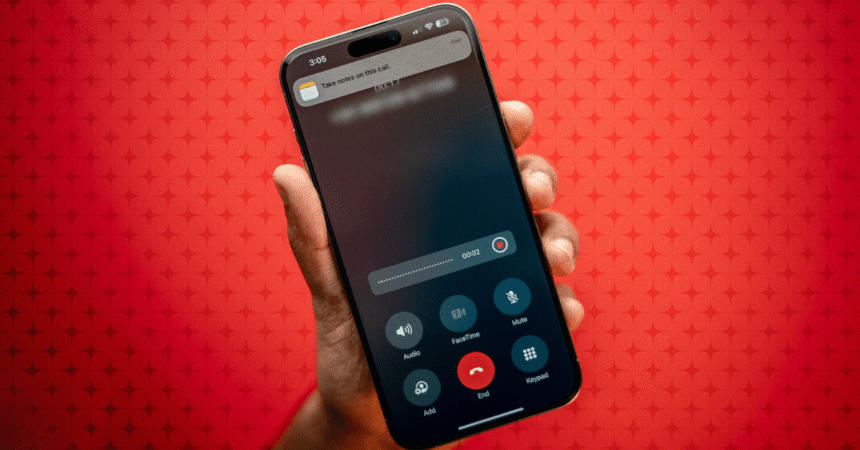Apple has finally answered the long-standing demand of its users by unveiling a highly-anticipated call-recording feature on all iPhones that support iOS 18. This new functionality promises to enhance the way users manage their conversations, providing a convenient tool for recording important calls while ensuring transparency and compliance with privacy standards.
How the Call-Recording Feature Works
The call-recording function is designed to be user-friendly. To initiate a recording, users can simply start a call and tap the record button on their screen. Importantly, both parties on the call are notified through a message, ensuring that everyone involved is aware that the conversation is being recorded. This transparency aligns with legal and ethical standards surrounding call recordings, making it a responsible addition to the iPhone’s capabilities.
Stopping the recording is just as straightforward. Users can tap the stop button at any time during the call. Once the recording is completed, it is automatically saved in a new “Call Recordings” folder within the Notes app, allowing for easy access and organization. This feature is particularly beneficial for professionals who need to keep records of conversations for work or personal purposes.
Language Support and Transcription
Another exciting aspect of the call-recording feature is its transcription capability. Currently, the transcription supports several languages, including:
- English
- Spanish
- Japanese
- Mandarin
- Cantonese
- Portuguese
This multilingual support makes the feature more accessible to a diverse range of users, allowing non-English speakers to benefit from call recordings and transcriptions. Users can easily review their recorded conversations in text form, facilitating better communication and record-keeping.
Implications for Users
The introduction of the call-recording feature is set to transform the way iPhone users approach their communication needs. Here are some key implications of this new functionality:
Enhanced Productivity
For professionals who rely on phone calls for business discussions, having the ability to record and transcribe calls can significantly enhance productivity. Important information discussed during calls can be revisited later, ensuring that nothing is overlooked. This feature can be particularly valuable in industries such as sales, legal, and customer service, where accurate records of conversations are crucial.
Improved Personal Communication
On a personal level, users can record calls with friends and family, capturing important moments or conversations that they may want to revisit later. Whether it’s a cherished family discussion or an important decision made over the phone, having a recorded version can provide peace of mind.
Legal and Ethical Considerations
Apple’s commitment to transparency in its call-recording feature is commendable. By notifying both parties that the call is being recorded, the company helps users comply with legal requirements that vary by region. In many places, it is illegal to record a call without the consent of all parties involved, and Apple’s approach ensures that users remain within legal boundaries.
Challenges and Considerations
While the new feature has many advantages, there are also some challenges and considerations to keep in mind:
Privacy Concerns
Despite Apple’s efforts to ensure transparency, some users may still have concerns about privacy and security. It’s essential for users to understand the implications of recording calls, especially when sensitive information is involved. Users should always obtain consent from the other party before recording.
Storage Management
With recordings being saved in the Notes app, users will need to manage their storage effectively. Depending on the frequency of use, call recordings can quickly accumulate, potentially taking up valuable space on the device. Apple may need to provide users with tools to manage these recordings efficiently, such as automatic deletion options after a certain period.
Legal Variations by Region
The legality of recording phone calls varies significantly by country and region. Users should be aware of the laws governing call recordings in their area to avoid any legal repercussions. Apple’s feature may be more beneficial in regions where such recordings are permissible, while users in stricter jurisdictions may need to be cautious.
Conclusion
Apple’s introduction of the call-recording feature on iPhones running iOS 18 marks a significant advancement in mobile communication. By prioritizing user transparency and providing easy access to recorded calls, Apple enhances the overall user experience while addressing a longstanding request from its customer base.
As users adapt to this new functionality, it is crucial to remain informed about the legal and ethical implications of recording conversations. With thoughtful use, the call-recording feature has the potential to revolutionize how individuals and professionals communicate, making it an exciting development in the world of technology.







